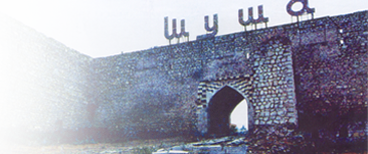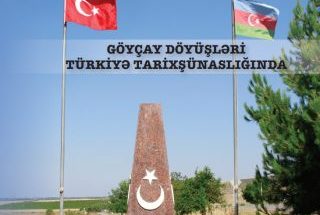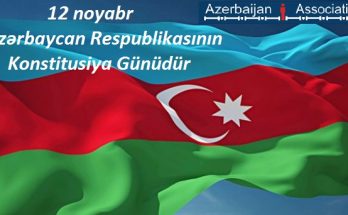 Director of Kiev-based Civil Society Studies Center Vitali Kulik spoke in an interview.
Director of Kiev-based Civil Society Studies Center Vitali Kulik spoke in an interview.
– Media reports claim that Barack Obama has promised to accelerate work of the OSCE Minsk Group on resolution of the Nagorno-Karabakh conflict. What new steps Washington can take with regard to the Karabakh issue?
Vitali Kulik: Among the post-Soviet conflicts process of settlement of the Karabakh problem is the most international. It is not just about the Minsk Group of OSCE, but also about the constant attention of Washington to the problem. U.S. funds social programs of local authorities from its budget and provides humanitarian assistance.
Now, Obama said he intends to accelerate the work of the OSCE Minsk Group. The first step the U.S. has already taken, namely, it has appointed Robert Bradtke, a career diplomat with 36 years of experience which specializes in the field of European security policy, a new co-chairman of the Minsk Group.
The U.S. interest in speeding up the settlement process can be explained by revived Armenian-Turkish talks. U.S. representatives of the Minsk Group hope to seize the initiative from Russia in this conflict with the assistance of which recent meeting of presidents of Azerbaijan and Armenia were organized. Perhaps, although it is difficult to believe, but America will force parties to coordinate their positions on the Madrid principles and adopt a new document, which will address the status of Nagorno-Karabakh and territories which must be returned to Azerbaijan.
In turn, Washington will give some preference to the Armenian side. In particular, I do not rule out U.S. support for Yerevan in its quest to withdraw from international isolation, to open border with Turkey, to consider the participation of the Armenian side in the energy and transport projects.
Q: Do you think that the possible deployment of missile defense system in Turkey is a kind of protection from possible military action by Iran?
A: Despite improvements in Iranian-Turkish relations in recent years, there is tacit rivalry for regional leadership between the two countries. These are two powerful nations, each with its strategy and vision of their own place in the region.
Although the administration of Barack Obama has scrapped plans to deploy missile defenses in Poland and the Czech Republic, U.S. officials made it clear that they intend to deploy missile defense facilities in other places which are more suitable to prevent rapidly growing Iranian threat. The Turkish leadership is concerned about Iran’s nuclear ambitions, but deployment of missile defense system in Turkey is “explosive” step, which may adversely affect its desire to become regional peacekeepers.
Moreover, Russia’s negative reaction to location of defense units near its border would not contribute to Russia-Turkish dialogue. One can completely agree with the leading Ukrainian specialist on security in the South Caucasus Elena Kotelyanets that rumors about a possible Turkish “residence permit” for U.S. missile defense are greatly exaggerated. On one hand, Washington sends a signal to Tehran about this (so as to encourage the Iranian leadership to make concessions), on the other hand it understands that Ankara is not ready yet to make this decision. Missile defense in the Black Sea region is a lazy perspective.
Q: What impact the situation with the Iranian nuclear program may generally have on the South Caucasus?
A: Enhancing nuclear potential of Iran will not significantly affect the South Caucasus. The region is busy with solving their own problems. “Cyprusization” of conflicts in Georgia by Russia has led to the search by South Caucasus countries for a new architecture of security.
In this process, Iran is only a factor, but not a player. But soon the question of “preventing threat from Iran” may again be on the agenda of U.S. policy in the South Caucasus region.
So, after the visit of the Georgian president to the U.S. media reported about that three U.S. military bases will be deployed in Georgia by 2015 which may be used against Iran. These are just rumors, but they can get real shape after the regime changes in Tbilisi.
Day.Az



